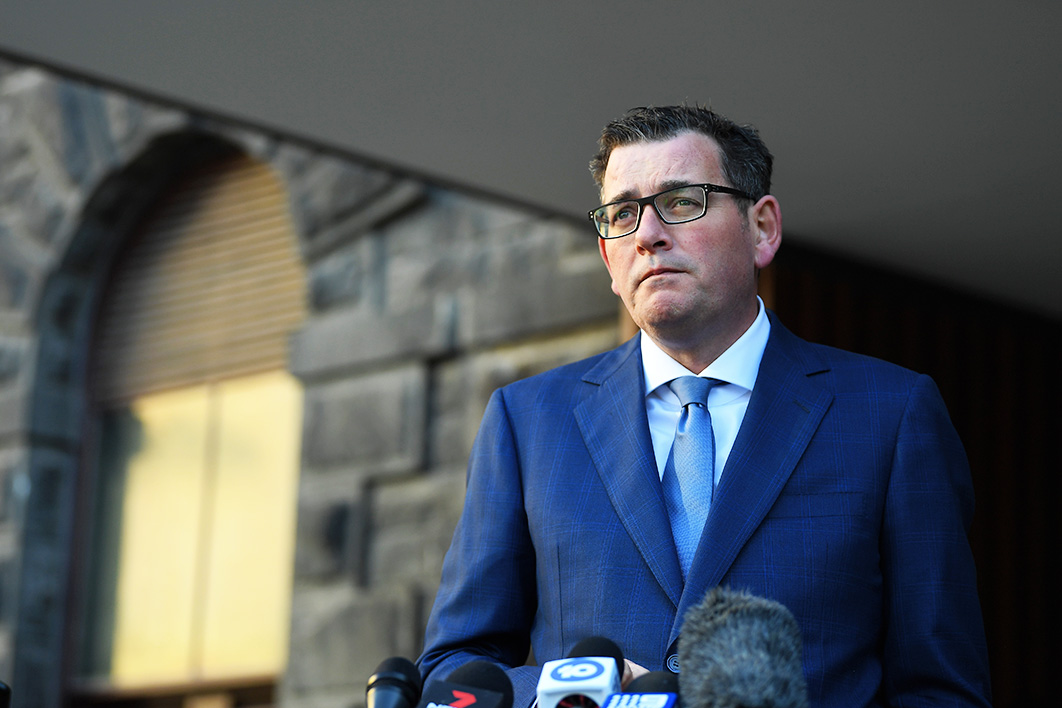When the federal executive of the Labor Party last intervened in Victoria, half a century ago, it was responding to the branch’s many electoral failures — it performed hopelessly in state elections and had cost the party federal election victories in 1961 and 1969 — and its hard-left position. Among the Victorian hardliners, election losses were written off as “principled” defences of socialist purity. The ruling Stalinist-lite group’s “winner take all” outlook meant that opponents who took dissent too far could find themselves facing expulsion.
Out of that intervention came Victoria’s current factional system, which found itself displayed on 60 Minutes last Sunday and the front page of the Age the following morning. The 1970s power-sharing scheme, designed to ensure that no faction dominated, helped create the incentive for aggressive branch stacking.
In electoral terms, today’s Victorian branch is a very different beast from that of half a century ago. Factional intrigue and bastardry (including accusations of branch-stacking on both sides) are never far away, but this didn’t stop Labor from becoming the natural party of state government in the early 1980s and, since then, a constant source of electoral strength for federal Labor. The occasional factional brawls have probably seemed irrelevant to voters more focused on issues such as health and education.
Inevitably, this week’s revelations raise the question of whether the current round of branch-stacking is different in kind or degree. Perhaps the main difference lies in the vulnerability of the perpetrators to state-of-the-art video and audio surveillance. Indeed, the quality of the evidence obtained by Nine and the Age would excite envy within the security services of some small nation-states.
Even the silliest politicians know that they are often just one indiscreet observation away from a surreptitiously recorded career-killer (think Hillary Clinton and the “deplorables”). But who would have thought that the same risks could attend a factional leader discussing a bit of branch-stacking with his closest (taxpayer-funded) comrades, with audio accompanied by video for good measure. You can’t trust anyone, can you?
The offence for which right-wing faction leader Adem Somyurek was dismissed is, of course, the least of his problems. A swearing politician is hardly novel, and while some of the boundaries he crossed may have brought back memories of Richard Nixon’s White House, quite a few MPs will be relieved that some of their own office outbursts have not (as far as they know) been recorded. Alas, emails can be equally revealing, as Somyurek’s factional colleague Anthony Byrne has discovered. Do you get the impression that these folks don’t delete many emails? This electronic warfare must be expected to continue.
Assessing how much of the branch-stacking and related activity constitutes criminal (as opposed to internal party) offences is best left to the legally trained, although the spectacle of a minister of the crown attempting to induce a party member to forge signatures might be characterised (in Sybil Fawlty’s words) as “a little tricky.” It is probably safe to assume that sufficient of the video and audio evidence would be admissible if charges proceed.
What the current turmoil may presage is a change in the Victorian electorate’s tolerance of factional warfare, since the loss of three ministers (at time of writing) would seem to fall into Oscar Wilde’s “careless” category. Voters prefer that the premier is in charge of the state, and suggestions that he was in any way beholden to Somyurek (who was able to indecently push his way back into cabinet three and a half years after his dismissal for sexist bullying in 2015) might raise uncomfortable questions.
In premier Daniel Andrews’s favour, the next state election is nearly two and a half years away. Indeed, another federal election will be held before Victoria goes to the polls, and the involvement of Victorian federal Labor MPs makes this Anthony Albanese’s problem too. It is virtually impossible to envisage Labor winning the next federal election without the usual solid contribution from Victoria.
Revealingly, in all of Somyurek’s colourful observations, there was nary a mention of policy or ideology: the agenda was completely about the acquisition and maintenance of power and control. The cliché about concern with “power for power’s sake” is no less true for being a cliché.
This should serve as a useful reminder that factional labels are not what they used to be. The days when left and right represented competing political philosophies and policies, to be accommodated within a broad church, are largely gone. Only senior citizens can recall battles within the party over communism and foreign policy, and those with memories of the passionate debate over uranium mining are no longer young either. Today, the nearest thing to an ideological breach is over asylum seekers.
Supporters of the factional system will cite its value in enabling its leaders to sort out behind closed doors any policy differences that do emerge, thus avoiding “party split” headlines. While this contention is not without merit, others would see value in a political party having an open and democratic exchange of views involving a wider range of participants.
If factions and factional control are often about patronage and the dispersal of the spoils of office, the problem has only been deepened by an important parliamentary reform in 2003. A restructured upper house has meant more winnable positions for Labor, tipping more safe seats into the “patronage pot” previously occupied solely by very safe lower house seats. The need to select electorally appealing candidates for marginal single-member upper house seat contests has gone.
In that context, a glance at Labor’s upper house membership reveals either a marvellous triumph of multiculturalism or an ethnic patronage system in which Somyurek was a master practitioner. Perhaps it is both, but it would be naive to ignore the role of branch-stacking in this outcome. And, of course, MPs are only a part of the picture: MPs have staff; ministers have even more staff. The tapes make clear that a keen interest in policy is not a key selection criterion for at least some of those staff positions.
Sunday’s 60 Minutes reminded viewers of the customary rationale for what some may criticise as ethnic patronage: “A disadvantaged community is empowered and Labor’s base is broadened” — presumably even more so if the new members are actually aware of their party memberships? In passing, one wonders whether, if an “Anglo” faction leader had been seen to be manipulating ethnic groups in the manner revealed, certain ugly questions might not have arisen.
Steve Bracks and Jenny Macklin seem suitable enough appointees to oversee the administration of the Victorian branch for the next three years, although the case for the work to be done by other than former politicians was not unreasonable. Bracks has already identified some of the obvious challenges — such as ensuring that people counted as members have actually made a conscious decision to join the party. The fact that as few as 16,000 members are on the books (not all of whom can possibly be genuine) is a timely reminder of how unrepresentative all political parties have become. The activities exposed in recent days almost certainly (partly) help explain why.
Preselection (for federal and state elections) will be a key issue in the administration period and a likely source of conflict. History tells us that an interregnum like this often favours the status quo, with sitting members re-endorsed. The obvious proviso is that any who are implicated in criminal activity might need to seek alternative employment.
Bracks and Macklin are not running a political science seminar, but it might be useful if they considered the realistic and desirable role of party branches and party members in the twenty-first century. A subset of that issue is the role of factions. The fit-for-purpose question looms large over this exercise. Finally, the role of electorate and ministerial staff also warrants consideration, perhaps more so given that they are publicly funded. An interesting three years beckon. •




